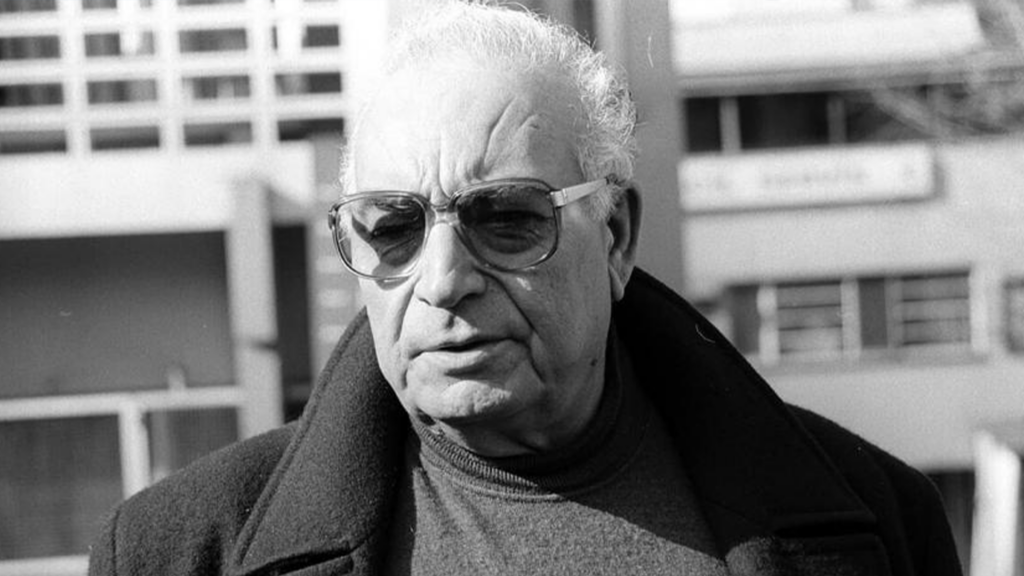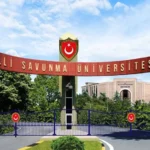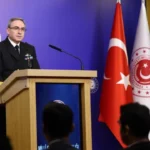Oral Çalışlar
The Turkish original of this article was published as İslâm dünyasını anlamayan oryantalist körlük on 16th November 2015.
That “Islam itself is the root cause of the violence” is a basic tenet of Western thought. This deeply rooted outlook is also a sine qua non of Turkish education. According to our world view, the cornerstone of Western civilization has been its ability to push religion outside daily life.
The savage massacre in Paris has caused all these verdicts to find powerful expression yet again. Searching for answers about “how this spiral of violence might be overcome,” quite a few commentators keep arguing that “Muslims must be seriously re-educated.” In Turkey, too, we are witnessing Islamism blamed even more harshly than by Westerners.
Winds of Orientalism
There are two complementary approaches that are both Orientalistic. One says that “it is those who are manipulating religion for political ends that are pursuing a violent path.” According to the second, “it is the religion itself that is legitimating violence, and which contains elements that provide fuel for terrorist acts.”
At the end of the day, both views hold that religion or religious people are at the bottom of all evil.
What the Islamic world says
In the world of Islam, too, there is a fundamental tendency to link the question to religion. According to this approach, it is because Muslims receive the wrong kind of religious instruction that there arises a propensity to violence. If the inner logic of the faith were to be taught and grasped correctly, the peaceful character of Islam would shine forth for all to see.
Is it religion that is the problem?
Let us consider those corners of the world that keep spawning violence. It is in impoverished countries that violence and terror are more easily enracinated. Let us also go through the densely Muslim-populated areas. The most violent acts of terrorism, the most savage forms of terror, keep sprouting wherever extreme poverty and helplessness have taken strongest hold. Recent African history is full of many an example in this regard.
When we look at this map yet again, we can see that in violence-stricken societies like Sudan, Somalia or Afghanistan, the fundamental problem is not one of religion but of poverty and despair. Furthermore, many parts of Africa that have experienced huge massacres are also inhabited by Christians.
Islamic State
Just where has IS come from? Is it not a product of the desperation caused by the disasters that have struck Iraq and Syria, the resulting rage of the excluded and humiliated Sunni Muslims, and their loss of any hope for their future? And just how has this environment been created?
Who used the pretext that he was “building atomic weapons” to overthrow Saddam, thereby plunging an entire country into a spiral of violence? American neo-cons. And who were they supported by? Who was behind all the propaganda “to liberate the Middle East through an American invasion and occupation”?
Back in 2003, those who today complain that “Erdoğan wants to take Turkey into the war in Syria” were writing one article after another in support of the US invasion of Iraq. These are easily available in the archives.
There is no way of denying primarily US and then also other Western countries’ responsibility for the currently dark outlook in the Middle East. As one of the primary culprits, former British PM Tony Blair has already admitted as much. “We are to blame for this picture,” he has said.
Looking for a way out of the violence
IS draws its strength not from religion but from desperation, from the chaos and uncertainty that has taken over the region. To claim that Muslims themselves are responsible for this pictureis tantamount to a willful Orientalistic blindness.
All this, of course, cannot be taken to mean that Muslims do not stand in need of being self-critical. Solutions for Sudan or Afghanistan are to be looked for not in the West but inside these countries. They have to find a way for themselves through their own social dynamics. Sooner or later, with regard to their faith and mode of existence, they themselves will arrive at a new equilibrium — I hope and believe.
A mistake common to the Islamic world has been to suppose that “the question can be solved through correct religious instruction.” In Somalia, for example, in the face of all the horrifying poverty and ruthless oppression, it would be naïve, to say the least, to expect any reasonable political movement to emerge. You are not likely to achieve anything by sending even the most peaceable clergy to such countries — except to risk their lives.
The Arab Spring was an opportunity for transitioning to democracy and reconciliation. The West threw a spanner in the works by preferring to support controllable dictators over parliamentary régimes.
The whole world must understand that the peoples of the region do not want violence, and are capable of choosing right over wrong.
Yazıyı beğendiysen, patronumuz olur musun?
Evet, çok ciddi bir teklif bu. Patronumuz yok. Sahibimiz kar amacı gütmeyen bir dernek. Bizi okuyorsan, memnunsan ve devam etmesini istiyorsan, artık boş olan patron koltuğuna geçmen lazım.
Serbestiyet; Türkiye'nin gri alanı. Siyah ve beyazlar içinde bu gri alanı korumalıyız. Herkese bir gün gri alanlar lazım olur.


















